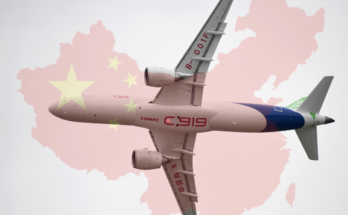He had promised it during his presidential campaign. He did it. To the chagrin of the rest of the world – and even some of its Republican allies – Donald Trump validated Thursday the introduction of tariffs on imports of steel (25%) and aluminum (10%) . And if at the moment Canada and Mexico are the only ones to be exempt from taxes, this trade barrier has immediately triggered the anger and concern of many countries. China, Brazil, Japan, Europe: allies and rivals of the United States denounce this attack against free trade. What trigger a trade war?
“Dialogue is always the first option for the European Union,” says Cecilia Malmström, European Commissioner for Trade.
Officially, EU countries – which exported 5.3 billion euros of steel and 1.1 billion euros of aluminum to the United States in 2017 – still hope that Donald Trump will give up these measures protectionists supposed to enter into force in fifteen days. “The EU is a close ally of the United States and we continue to believe that the EU should be exempt from these measures,” she said.
Behind the scenes, this is actually months that the 28 member countries are preparing to respond. “We are ready and will be ready to use re-balancing measures if necessary,” Jyrki Katainen, the Vice President of the European Commission, explicitly threatened on Friday. How? Brussels has conscientiously compiled the list of products imported from the United States that could, in turn, be taxed up to 2.8 billion euros.

The aluminum summit, which took place in Montreal on June 3 and 4, was suddenly backfired because of the trade dispute triggered by the introduction, since June 1, of tariffs on steel. and aluminum exported to the United States by the European Union, Canada and Mexico.
The summit, attended by nearly a hundred industry and government representatives from Canada, the United States, Europe and Japan, aimed to mobilize forces to fight global overcapacity, just before the meeting. G7 in Quebec City on June 8th and 9th.
US decision to impose new tariffs of 10% on aluminum and 25% on steel, followed by threats of retaliation from EU, Canada and Mexico, creates crisis according to Jean Simard, president of the Aluminum Association of Canada. But paradoxically, the industry intends to take advantage of this trade conflict to tackle the problem of Chinese overproduction. “We have a little more listening than we would otherwise have,” says Simard.
Participants agreed to call on the G7 countries to support the creation of a global forum on global aluminum overcapacity. The idea is inspired by the one that has existed for two years on the overproduction of steel. This would bring together the G20 countries, representing 80% of the primary aluminum market, and would receive assistance from experts from the Organization for Economic Co-operation and Development (OECD). Ambition: to paint a complete picture of the industry and its problems, and then start negotiations to resolve them.
“A climate of uncertainty”
It is not excluded that China wants to participate, as for steel, to show its goodwill. If the country knows a strong demand of aluminum related to its economic growth, Beijing also exports a lot and increases …




